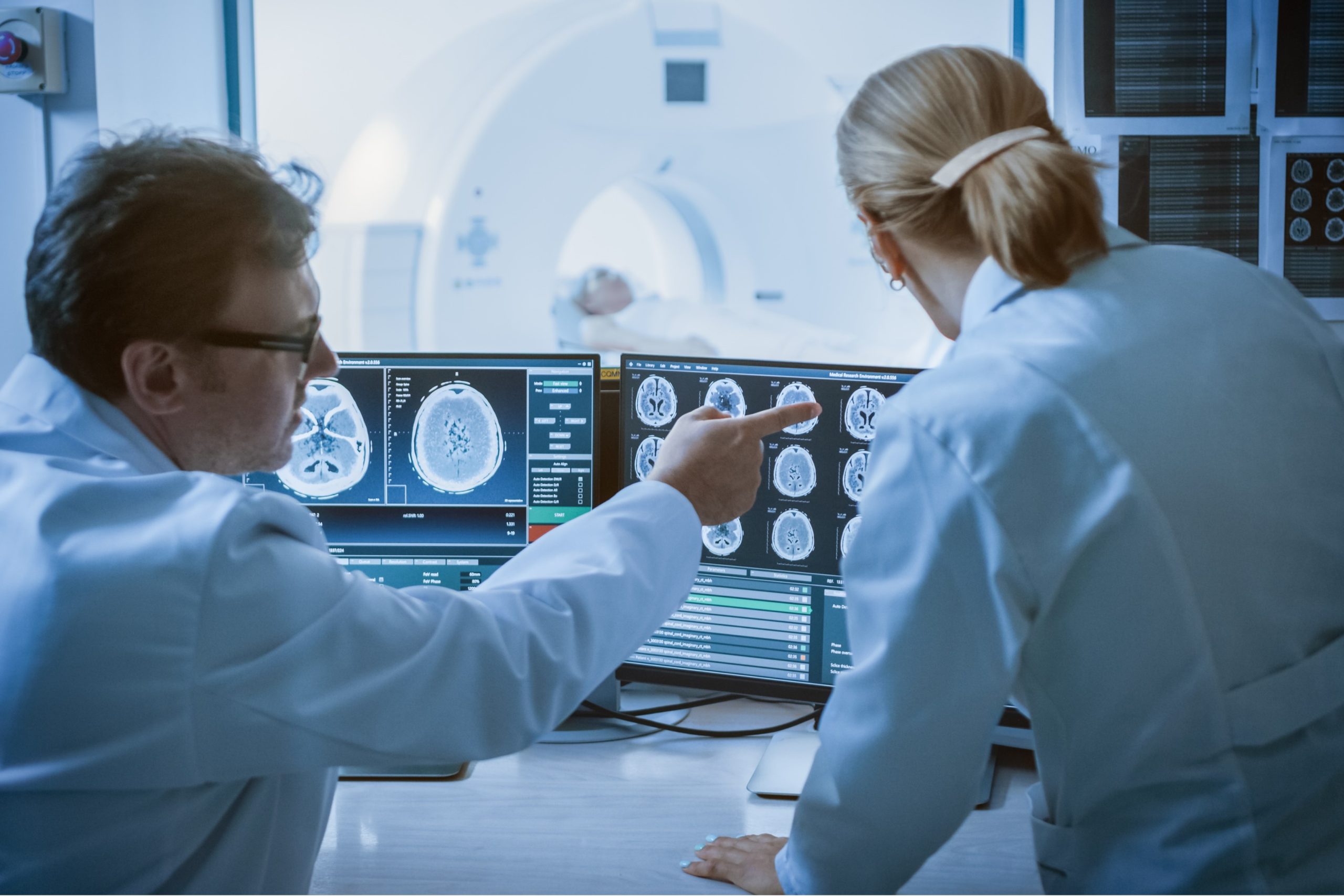What is MRI?
A radiographer explains

What is MRI?
Posted on Mon Nov 19, 2018
Magnetic Resonance Imaging: most of us have heard of MRI, and many have had an MRI scan, but what actually is it and how does it work? We sat down with Cristiano Costa, Senior Radiographer at Oryon Imaging, to ask him exactly this question.
So how does MRI work?
Most of the human body, (about 60-70%), is made up of water molecules: H2O. MRI focuses on hydrogen, the most prevalent atom in the human body.
Under a strong magnetic field the protons in hydrogen atoms become aligned, and that’s exactly what happens in an MRI scanner, which uses magnetic coils to create a strong magnetic field that is passed through the body.
Magnetic force is measured in Tesla; one Tesla being equal to 20,000 times the magnetic force of Earth. Our MRI scanner is a 1.5 Tesla model, so that gives an indicator of how powerful it is.
A radiofrequency current is then passed through the body, which causes the protons to spin out of alignment. When the radiofrequency is turned off, the protons realign with the magnetic field and release energy, which the MRI gradients are able to detect, allowing the computer to determine the exact location of the protons in the body and produce an image of them.
Because protons in different types of tissue realign at different speeds and produce a distinct signal, it’s possible to distinguish between the various types of tissue in the body. For example, protons realign faster in bones, which means that more energy is produced, which is why bones appear brighter in MRI images.
What causes the noise in the MRI room?
Every three-dimensional system works on three axes, (x, y and z). An MRI scanner is no different. Whilst acquiring the images the three axes, called ‘gradients’, are turned on and off rapidly, (we’re talking milliseconds here). When it’s switched on, the gradient expands slightly, which makes a noise.
The noise that you hear from an MRI scanner, then, is simply the gradients switching on and off.
Is MRI dangerous?
No, MRI scans are completely safe for people with no metallic implants, or electronic or battery appliances on their person. Extensive research has been made into the safety of MRI scans, with no evidence of anything harmful. Although there is no evidence to suggest any harm to unborn babies, as a precaution women in their first trimester of pregnancy are not normally scanned.
Although it’s perfectly safe for the vast majority of people, the strong magnetic field means that MRI can be dangerous to some people with metallic, electronic or battery implants in their body.
Because of these potential dangers, we have an exhaustive safety screening before anyone enters the MRI scanning room. This screening applies to everyone entering the room: patients; healthcare professionals; cleaners; maintenance staff etc.
But just to reiterate, MRI scans are completely safe as long as the patient passes the screening! We scan thousands of patients each year and everything we do prior to the scan is to make sure that they are safe to enter the scanning room.
Why do clinicians refer for MRI over other scan types?
MRI scans give fantastic images of bones, ligaments, tendons, nerves, discs and organs. They can diagnose fractures, muscular or ligament tears, spinal disc bulges or nerve entrapment. They are the Gold Standard for diagnosing musculoskeletal pathology and neuropathology, and many clinicians appreciate the incredibly detailed images that they produce.
At Oryon Imaging, we offer affordable diagnostic imaging in the heart of Central London. If you need a scan, we’re an efficient, affordable and quick option, with MRI scans from £275, Ultrasound from £295, X-ray from £70 and DEXA at £115. Use our secure online community, Connect, to book scans and see results afterwards.
Cristiano Costa is a Senior Radiographer at Oryon Imaging. To book a scan or refer a patient, click on Book now.
Share this article
Most Recent
How Long Does A Shoulder MRI Take?
Posted on Thu Jun 26, 2025
Posted on Thu Jun 26, 2025
Posted on Thu Jun 26, 2025
Stay up to date
If you’re interested in keeping up with what we’re doing, just leave your email address here and we’ll send you periodic newsletters and other updates.





